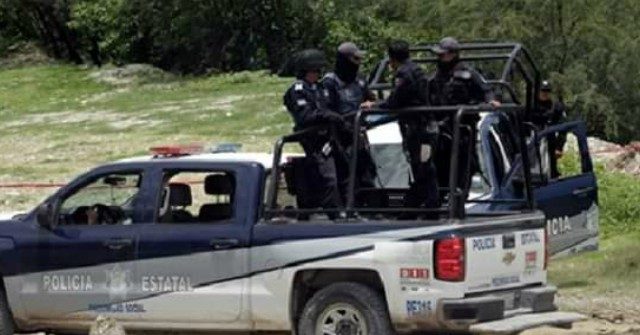In a tragic and alarming incident in San Juan Amecac, Puebla, Mexico, authorities have confirmed that a mob lynched three men suspected of attempting to kidnap a 5-year-old girl. This horrific event unfolded over the weekend when a local resident raised an alarm about an attempted break-in. The community swiftly mobilized, and neighbors managed to apprehend the suspects. By the time law enforcement arrived, the mob had already executed the three men, hanging them from a light pole in a nearby orchard, highlighting the desperate actions taken by the community in response to perceived threats against their safety.
The incident began around 3 p.m. on Saturday, emphasizing the return of deeply rooted fears about crime and security in the area. Residents reacted quickly to the alarm raised by the local, demonstrating both their protective instincts and the tension present in communities dealing with rising crime rates. The mob’s brutal beatings of the suspects indicate a breakdown in trust toward established law enforcement, prompting citizens to take justice into their own hands. The swift shift from a community alert to mob justice exemplifies the heightened emotions surrounding safety in Mexico, where reports of crime are prevalent.
This instance of mob violence is not an isolated occurrence. In recent years, the issue of lynchings has become more prominent across Mexico, fueled by growing frustrations over the government’s inability to provide adequate security. The ruling party, MORENA, has faced criticism for its ineffective policies that have led to increased levels of crime and impunity throughout the nation. Such incidents reveal a societal desperation for justice when formal avenues seem inadequate or non-responsive. Data from the NGO Causa Comun stated that during the first half of 2024 alone, there were 11 lynchings and 45 attempted lynchings, which signifies a worrying trend that continues to escalate.
This escalating violence reflects a broader context of public dissatisfaction with governmental actions and an inability to safeguard communities. The dynamics of power and control within neighborhoods are shifting as local populations feel compelled to enact their interpretations of justice in response to rising crime rates. The lynching in San Juan Amecac serves as a stark indication of societal breakdown and the failures of law enforcement and governance, where citizens take extreme measures under the belief that justice is not being served.
The journalists Ildefonso Ortiz and Brandon Darby, both associated with Breitbart Texas, have highlighted this incident as part of a larger conversation about crime and justice in Mexico. Their work, particularly the Cartel Chronicles project, sheds light on the ongoing conflict involving cartels and the daily struggles of citizens in Mexico. The alarming rise of lynchings encapsulates not just a local phenomenon but a national crisis that demands attention. It reflects the broader implications for human rights and the rule of law when communities resort to mob actions due to lack of faith in lawful intervention.
In conclusion, the tragic lynching of three men in Puebla uncovers the underlying tensions between public safety concerns and the efficacy of law enforcement in Mexico. As communities grapple with rising crime and escalating violence, incidents like these underscore the urgent need for reevaluation of security policies and support for law enforcement agencies. The increasing incidents of mob justice signify a society increasingly willing to forgo due process in the pursuit of immediate justice, posing a challenge for the future of civil rights and community safety in Mexico. The ongoing dialogues initiated by journalists bring critical awareness to these complex, interconnected issues facing the nation today.

